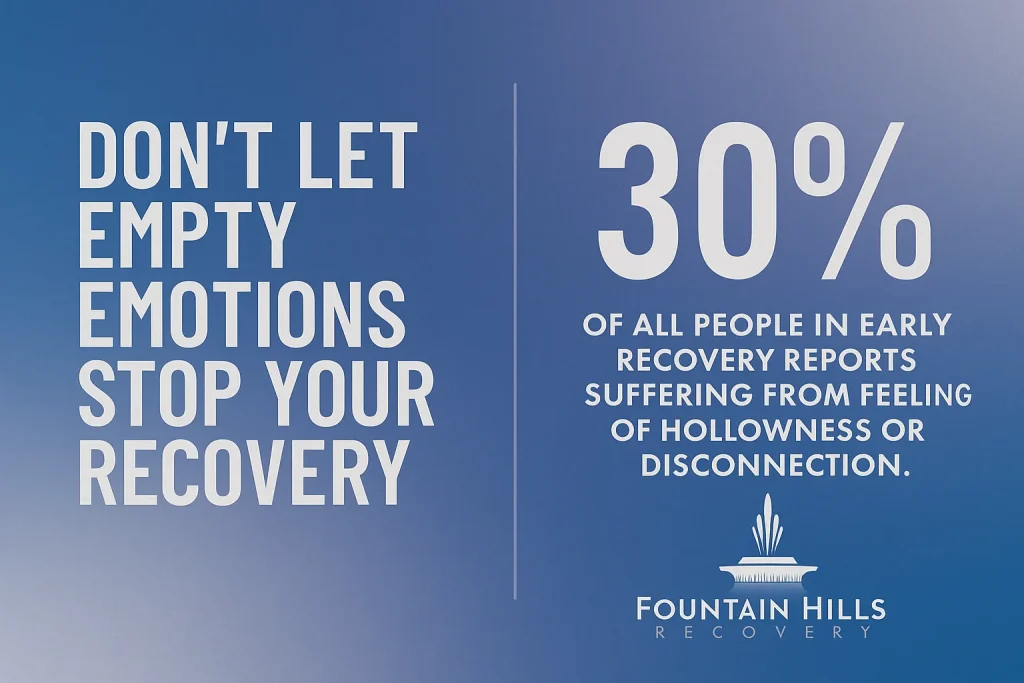It’s quiet now.
Maybe for the first time in a long time, there’s no chaos. No hiding. No numbing. You’ve stepped into early sobriety, and the world suddenly feels too loud, too still, or just… hollow.
If this is what recovery feels like, you’re probably wondering: What was the point of getting clean, if I still feel so far from okay?
You’re not alone. That aching emptiness, that strange disconnection—it’s real. And for many people in early recovery, it’s not a sign that you’re doing something wrong. It’s a sign that there’s more going on under the surface.
That’s where dual diagnosis treatment comes in. Not as a fix-all. Not as a label. But as a way to finally be seen—and supported—in the full reality of what you’re carrying.
What Does “Dual Diagnosis” Actually Mean?
Dual diagnosis means you’re living with both a substance use issue and a mental health condition—something like depression, anxiety, PTSD, or bipolar disorder.
It doesn’t always show up in that order. Sometimes it starts with untreated trauma, and substances become a way to self-medicate. Sometimes the substances come first, and the mental health issues unfold after. For a lot of us, it’s tangled. Messy. Hard to separate.
What matters is this: dual diagnosis treatment recognizes that your struggles aren’t in separate silos. They’re woven together. So your care should be, too.
At Fountain Hills Recovery, that means you’re not bouncing between a therapist for your anxiety and a separate provider for your addiction. You’re not having to explain your whole story over and over, hoping someone finally understands.
Instead, you work with a team that sees the full picture. A team that knows your depression isn’t a side note—and your addiction isn’t the whole story. You’re allowed to be complex here.
Can Dual Diagnosis Treatment Help Me Feel Like Me Again?
Let’s be real. Some days, you might not even know who “me” is anymore.
Addiction, mental health, trauma—they can all cloud your sense of self. They blur the line between survival mode and identity. You might look back and think, Was that really me? You might look forward and wonder, Will I ever feel real again?
That disorientation is common in early recovery—especially for those of us who’ve been numbing for years just to stay upright.
Dual diagnosis treatment won’t hand you an instant identity. But it will help you untangle what’s been driving your pain. It will help you notice the patterns and beliefs that formed when you were just trying to get through the day. And it will offer real tools—medically and emotionally—to start rebuilding a self that feels whole, not hollow.
This isn’t about becoming someone else. It’s about remembering who you were before the coping turned into chaos—and discovering who you might be with support.
Why Do I Feel Worse Now That I’m Sober?
Because now you can feel.
The substances are gone—or going—and suddenly everything hits harder. The anxiety that used to get dulled out by a drink. The grief that got buried under a high. The loneliness you distracted yourself from every night.
Now it’s just… there.
And it sucks.
But it also makes sense. When you remove the numbing agent, what was underneath will naturally rise to the surface. That doesn’t mean sobriety is making you worse. It means you’re finally in a place where healing can begin.
Without support, that flood of emotion can be overwhelming. That’s why dual diagnosis care matters. Because it offers more than sobriety—it offers stability. Real strategies. Medication if needed. A safe space to feel all the things you’ve been avoiding—without drowning in them.

What If I’ve Already Tried Therapy or Rehab and It Didn’t Help?
You’re not broken because it didn’t work the first time.
Maybe the therapist didn’t “get it.” Maybe your last program focused on your substance use, but ignored your depression. Maybe no one asked about the trauma. Maybe you didn’t feel safe.
That doesn’t mean you failed. It means you didn’t get the kind of support your whole self actually needed.
At Fountain Hills Recovery, we approach dual diagnosis treatment as a personalized process—not a plug-and-play solution. We recognize that mental health and substance use can shift day by day, and your care should too.
Whether this is your second time in treatment or your fifth, you’re still allowed to want something better. You’re still allowed to try again.
And this time, you don’t have to do it alone.
What If I Don’t Know What’s Wrong—Can I Still Get Help?
Absolutely. So many people arrive in treatment not knowing if they “qualify” or if their pain is “valid” enough. Spoiler alert: it is.
You don’t need a diagnosis in hand. You don’t need the right words. You just need enough willingness to say, Something isn’t right, and I don’t want to keep feeling like this.
That’s where we start.
Dual diagnosis treatment includes comprehensive assessment—not just so we can label you, but so we can support you better. Maybe it’s trauma. Maybe it’s a mood disorder. Maybe you’ve been carrying something that has a name—and a path toward healing.
You don’t need to have it all figured out. You just need to show up. We’ll meet you there.
What If I’m Just So Damn Tired?
You’re allowed to be.
Recovery isn’t just about not using. It’s about rebuilding. About waking up every day and choosing to face what used to send you running.
And that’s exhausting.
Especially when you’re doing it without the emotional escape hatch substances used to offer. Especially when the people around you don’t seem to get it. Especially when you’re carrying grief, regret, or shame that won’t shut up.
If you’re feeling flat, numb, or like the spark is gone—that doesn’t mean you’re failing. It means you’re in the messy middle. The part no one puts on Instagram. The part where you’re still here, even when it doesn’t feel good yet.
Dual diagnosis treatment gives you permission to be in that middle. To rest. To get honest about how hard this is—and get actual help moving through it.
What Makes Dual Diagnosis Treatment at Fountain Hills Recovery Different?
We’re not just treating diagnoses. We’re treating humans.
At our dual diagnosis program in Fountain Hills, AZ, you’ll find more than therapy and meds. You’ll find people who get it. Staff who’ve been there. Peers who won’t flinch when you share the darker stuff. Clinicians who know how to work with complexity—not just symptoms.
Our location offers peace and privacy, but it’s not isolation. You’ll be part of a recovery community that honors the fact that healing is both personal and collective.
And we tailor your treatment—clinically and emotionally—to your story. You’ll have access to trauma therapy, medication management, psychiatric care, and relapse prevention strategies that work together. Because your anxiety and your addiction? They’re not playing by separate rules. Your treatment shouldn’t either.
Final Thoughts: You’re Not Too Broken to Come Back
You might feel like your spark is gone. Like the person you used to be is buried too deep to ever find again.
But listen closely:
You are not lost. You are becoming.
It won’t happen all at once. It won’t be neat. But it will be real. And you don’t have to do it on your own.
Ready to talk?
Call (800) 715-2004 to learn more about our dual diagnosis treatment services in Fountain Hills, AZ.
You don’t have to be fixed to deserve care. You just have to be willing to start.





